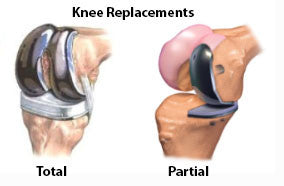Turmeric and Curcumin for arthritis

Turmeric has been used by traditional Indian medical practitioners for hundreds of years to heal all manner of pains and ailments. Turmeric has been shown to not only reduce pain but it also improves joint health.
What is the difference between Turmeric and Curcumin?
Turmeric is the yellow spice that is used to give curries flavour and colour. The plant itself, curcuma longa, is widely grown in Asia and is a member of the ginger family. The bulbous part of the root, called a rhizome, is dried and turned into the powder, which you are more likely to be familiar with.
Curcumin is a naturally occurring chemical compound that is found in turmeric. It is this very important compound that not only provides the distinctive yellow colour, but is also the active ingredient that has recently caught the attention of medical scientists, especially those looking into arthritis.

Scientists have discovered that curcumin has powerful anti-inflammatory and anti-oxidant properties. This explains why studies have shown curcumin to provide relief for people with osteoarthritis, rheumatoid arthritis and other inflammatory arthritic conditions, in some cases, with more success than conventional treatments.
It is thought that the curcumin blocks certain enzymes and cytokines that are involved in the inflammatory pathway. This reduces pain and improves the health of tissues within the joint.
As a natural anti-oxidant curcumin helps prevent the damage caused by free radicals that circulate in the body.
Studies have shown that curcumin modifies the bodies immune response, which could explain why it can be beneficial to people suffering from rheumatoid arthritis.
How much turmeric do I need?
Analysis shows that in normal turmeric the curcumin content is around 3-6%. Pain relief from arthritis may require ingesting more turmeric than you eat in a typical diet, so advocates often recommend a dietary supplement to provide a sufficient quantity of curcumin.
Experts say that turmeric in capsules is preferable to turmeric in tablet form as tablets are heated, with a stabiliser added to help the tablets hold their shape. Heating reduces the potency of the curcumin, whereas in capsules the turmeric is as nature intended.

With conventional non-steroidal anti-inflammatory drugs (NSAIDs) there are many side effects, including: stomach pain/heartburn, stomach ulcers, increased bleeding, headaches/dizziness, liver problems, kidney problems, high blood pressure.
Side effects from turmeric are rare, even at high doses, so it is safe for almost everyone to take.
Why Active650 Turmeric?
The biggest issue for people taking turmeric that scientists have found is the difficulty in absorbing it. The curcumin in turmeric is not water soluble and is not easily absorbed in the gut, however, studies have shown that a compound called piperine, which is found in black pepper, can greatly increase the absorption of curcumin.
The Active650 blend of turmeric overcomes the absorption issue in 2 ways:
- Extra curcumin increases the amount in the gut
- Added piperine increases the absorption from the gut
Many turmeric capsules use fillers to bulk up the contents of the capsule. In Active650 turmeric capsules you'll just find organic turmeric, standardised 95% curcumin and piperine.

Active650 turmeric capsules are designed with a potency that means you only need one capsule a day and come in 3 convenient options:
- Subscription, where we post capsules out to you each month and you never run out. This option saves us time and money and we pass that saving on to you so you get the best value turmeric.
- 120 Capsules, that will last 4 months.
- 30 Capsules, for a one month trial (it is recommended that turmeric capsules are taken for at least a month to start seeing maximum benefits).
Who should not take turmeric capsules?
Turmeric has a blood thinning effect so should not be used by anyone on blood thinning medication. Anyone who is prone to gallstones or kidney stones should avoid taking turmeric capsules, as should anyone who is pregnant or breastfeeding, or allergic to turmeric.



